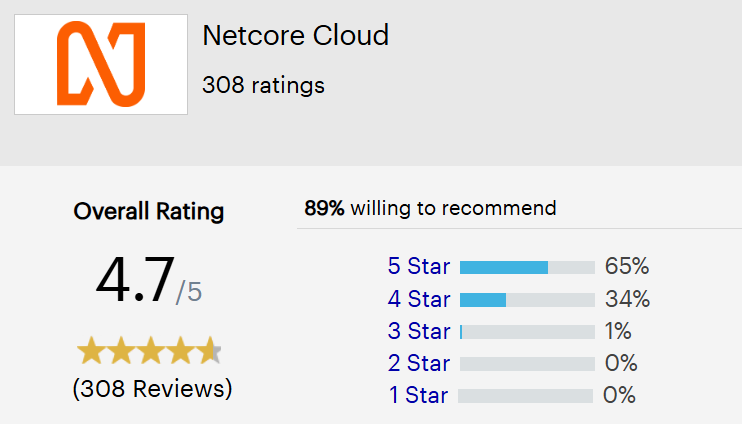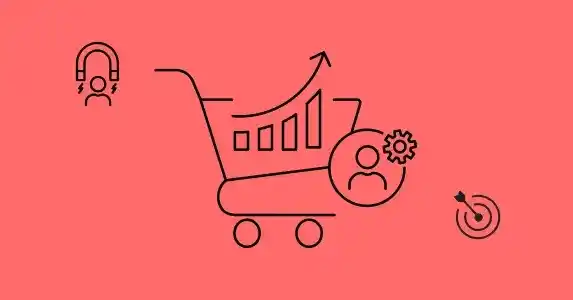Looking for Salesforce Marketing Cloud Alternatives? You’ve probably run face-first into one (or more) of the following Salesforce Marketing Cloud pain points:
- You’re spending more time learning the platform than launching campaigns.
- Your personalization still runs on batch logic instead of real-time behavior.
- Your budget gets eaten up by “surprise” add-ons, connectors, or integration patches.
- And to do anything meaningful, you need to chase down the IT team (again).
Sound familiar?
Salesforce Marketing Cloud has long been the gold standard for marketing automation. But for many ecommerce brands in 2026, it’s starting to feel more like a golden cage—powerful but heavy, feature-rich but clunky, promising omnichannel agility but delivering too many bottlenecks.
That’s where this article comes in.
I’ll walk you through the best Salesforce Marketing Cloud alternatives available today—platforms that ecommerce leaders are turning to for real-time engagement, AI-driven personalization, and leaner, faster campaign execution. Whether you’re a CMO recalibrating ROI or a marketing ops leader looking to future-proof your stack, this post gives you the clarity to make the switch with confidence.
Spoiler: Netcore stands tall in this lineup—and we’ll show you exactly why.
Let’s dive in.
Why Teams Are Searching for Salesforce Alternatives
Salesforce works—but not always if you need speed, simplicity, transparency, and real-time.
- Training burden: Admin-heavy setup and annual recertification just to launch basic workflows
- Batch-only automation: Personalized messaging can lag minutes or hours
- All-inclusive pricing shock: Base licenses + add-ons + customization fees = expensive surprises
- Tech-dependence: Marketing teams can’t launch campaigns without developer support
- Integration issues: Legacy architecture means delayed syncing and occasional outages
- Data silos everywhere: Team-friendly reporting feels superficial or hard to access
If this sounds familiar, you’re not alone—and it’s a great reason to look elsewhere.
What to Prioritize in a Salesforce Replacement
The ideal platform is real-time, seamless, and designed for marketers—not IT teams.
Must-Have Capabilities:
- Real-time engagement: No batch limits—segmentation and campaigns must trigger instantly
- Omnichannel reach: Email, push, SMS, WhatsApp, web—connected under one roof
- AI for behavior: Forecast interest, churn, and affinity without manual tagging
- Ease of use: No-code campaign builders with a marketer-first interface
- Predictable pricing: Scalable licenses, transparent add-ons, ROI-focused structure
With these priorities, you’re positioned to evaluate serious Salesforce alternatives.
Netcore: The Real-Time Marketer’s Dream
Netcore matches Salesforce feature-by-feature, but stands apart in price, speed, and simplicity.

Compare Netcore and Salesforce Marketing Cloud on G2
What You Get:
- No-code Journey Builder: Easily create omnichannel campaigns using the drag-and-drop Co-Marketer—no IT support required.
- 1:1 AI-Powered Personalization: Segment Agent enables targeting based on affinity, propensity, and real-time intent.
- Real-Time Campaign Optimization: Insight Agent helps you adjust content, timing, and channels while campaigns are live.
- Unified Customer View: One dashboard connects all your touchpoints—email, SMS, WhatsApp, app, and web—eliminating data silos.
- Transparent Pricing: Predictable costs with no hidden fees, licensing surprises, or integration charges.
- Faster Time-to-Value: Launch campaigns in minutes, not weeks—perfect for time-sensitive ecommerce campaigns.
- Cross-Channel Engagement: Orchestrate seamless communication across all digital platforms from a single platform.
- Built for Ecommerce: Designed specifically to support high-volume, high-velocity brands with dynamic product catalogs and seasonal spikes.
Why Marketing Teams Love It:
- Instant campaign setups—no IT tickets
- 10–25% conversion lift and similar uptick in repeat purchases
- Significant CAC reduction with smarter targeting
- Zero hidden fees or support dependency
If your alternatives list doesn’t include Netcore, it probably should.
Salesforce Marketing Cloud Vs Netcore
| Feature | Salesforce Marketing Cloud | Netcore |
|---|---|---|
| Personalization | Batch triggers | Predictive, real-time |
| Campaign setup | IT-heavy workflows | DIY, visual builder |
| Cost | Layered licenses | Transparent tiers |
| Channel reach | Core channels only | Email, Web, Push, RCS, WhatsApp, SMS |
| AI & predictions | Limited | Deep, intent-based models |
| Integration | Complex | Easy connector setup |
| Scalability | Often IT-limited | Designed for marketer scalability |
Top Salesforce Marketing Cloud Alternatives
While Salesforce Marketing Cloud is a popular enterprise solution, it’s far from the only option. Several Salesforce Marketing Cloud Alternatives offer unique strengths—whether you need better mobile reach, simpler automation, or AI-powered segmentation. Below is a curated comparison of top contenders ecommerce marketers are evaluating in 2025.
Top Klaviyo Alternatives Comparison
| Platform | Key Features | Cons | Rating (out of 5) |
|---|---|---|---|
| Netcore | AI-powered segmentation, 1:1 personalization, visual campaign builder, omnichannel automation | Smaller brand recognition in North America | 4.7 |
| Salesforce Marketing Cloud | Robust CRM integration, advanced reporting, Journey Builder | Steep learning curve, expensive add-ons, batch processing limitations | 4.2 |
| WebEngage | Multi-channel orchestration, web personalization, journey designer | Interface can be overwhelming for new users | 4.5 |
| Adobe Experience Cloud | Enterprise-grade analytics, deep personalization, A/B testing | Very expensive, complex onboarding | 4.3 |
| MoEngage | Push notifications, email, journeys, analytics | Limited predictive capabilities, less support for B2B use cases | 4.4 |
| Insider | Smart recommendations, behavioral targeting, cross-channel messaging | Enterprise focus makes it less suitable for mid-market | 4.4 |
| Braze | Customer journeys, in-app messaging, personalization | Premium pricing, tech-heavy setup | 4.5 |
1. Adobe Marketing Cloud
Best for: Large enterprises with deep pockets and in-house data teams.
Pros
- Deep integration with Adobe Creative Suite and Analytics.
- Extensive personalization options across channels.
- Strong campaign orchestration for complex customer journeys.
Cons:
- High TCO (Total Cost of Ownership): Licensing, implementation, and support costs stack up fast.
- Steep learning curve: Requires technically skilled teams to manage effectively.
- Slow go-to-market: Campaigns can take weeks to build without trained resources.
2. Oracle Marketing Cloud (Responsys, Eloqua)
Best for: Finance, telecom, and B2B verticals needing robust data handling.
Pros:
- Exceptional data management capabilities.
- Advanced segmentation and rule-based targeting.
- Integrates well with Oracle ERP and CRM ecosystem.
Cons:
- Heavyweight UI: Not marketer-friendly without deep training.
- Complex setups: Launching campaigns involves IT dependencies.
- Pricey integrations and add-ons.
3. Marketo Engage (Adobe Experience Cloud)
Best for: B2B ecommerce and SaaS brands prioritizing lead nurturing.
Pros:
- Advanced lead scoring and account-based marketing features.
- Native CRM integrations with Salesforce and Microsoft Dynamics.
- Mature content personalization engine.
Cons:
- Overkill for transactional ecommerce brands.
- Not built for fast-moving D2C campaigns.
- Interface feels dated and non-intuitive for modern teams.
4. HubSpot Marketing Hub
Best for: SMB and mid-market ecommerce players who need simplicity.
Pros:
- Intuitive UI for marketers—no technical help needed.
- Built-in CRM and automation features.
- Great customer support and onboarding resources.
Cons:
- Scales poorly: Lacks advanced AI or predictive modeling at higher complexity.
- Limited segmentation depth: You’ll hit targeting walls fast if you want multi-dimensional segments.
- Omnichannel personalization is basic.
5. Braze
Best for: High-growth D2C and app-first brands focused on engagement.
Pros:
- Strong personalization and real-time customer journey orchestration.
- Excellent mobile-first support with in-app messaging, push, and SMS.
- Event-based triggers work seamlessly with APIs.
Cons:
- High cost for mid-market teams.
- Steep setup curve: Data modeling and integration require dedicated resources.
- Not ideal for email-first brands.
6. WebEngage
Best for: APAC and MENA-based ecommerce businesses looking for flexibility.
Pros:
- Modular pricing, good for growing brands.
- Strong on lifecycle campaigns and retention.
- Regional customer support is responsive.
Cons:
- Real-time segmentation and predictive capabilities are less mature.
- UI and UX feel less polished.
- Not as effective for cross-border or complex brands.
7. MoEngage
Best for: Mid-sized ecommerce and consumer app brands looking for simplicity and mobile reach.
Pros:
- AI-based segmentation and personalization engine.
- Quick campaign setup with visual flows.
- Integrated push, SMS, and email.
Cons:
- Not as robust in real-time product recommendations or deep analytics.
- Scaling beyond mobile-heavy use cases may require integrations.
8. Insider
One of the Best Salesforce Marketing Cloud Alternatives for: Web-first ecommerce players seeking AI-powered personalization and product recommendations.
Pros:
- Visual campaign builder supports personalization across email, web, and app.
- AI-based predictive segmentation, next-best product, and churn modeling.
- Strong in-site personalization engine.
Cons:
- Priced at the higher end of the market.
- Requires onboarding and training to fully leverage its AI suite.
- Campaign reporting is not as real-time or granular as some competitors.
Final Take
If you’re an ecommerce decision-maker stuck on setup delays, performance lags, and ballooning costs, it’s time to switch. Netcore brings marketer-founded simplicity, intent-driven AI, and seamless omnichannel engagement—all without Salesforce-level overhead.
Book your Netcore demo today—if you’re serious about AI-powered personalization, predictable costs, and execution speed, your ecommerce flywheel is ready to fire.
Book Demo Now Worried About Your AI Marketing Strategy? Read the Agentic Marketing 2026 Predictions Report! →
Worried About Your AI Marketing Strategy? Read the Agentic Marketing 2026 Predictions Report! →









